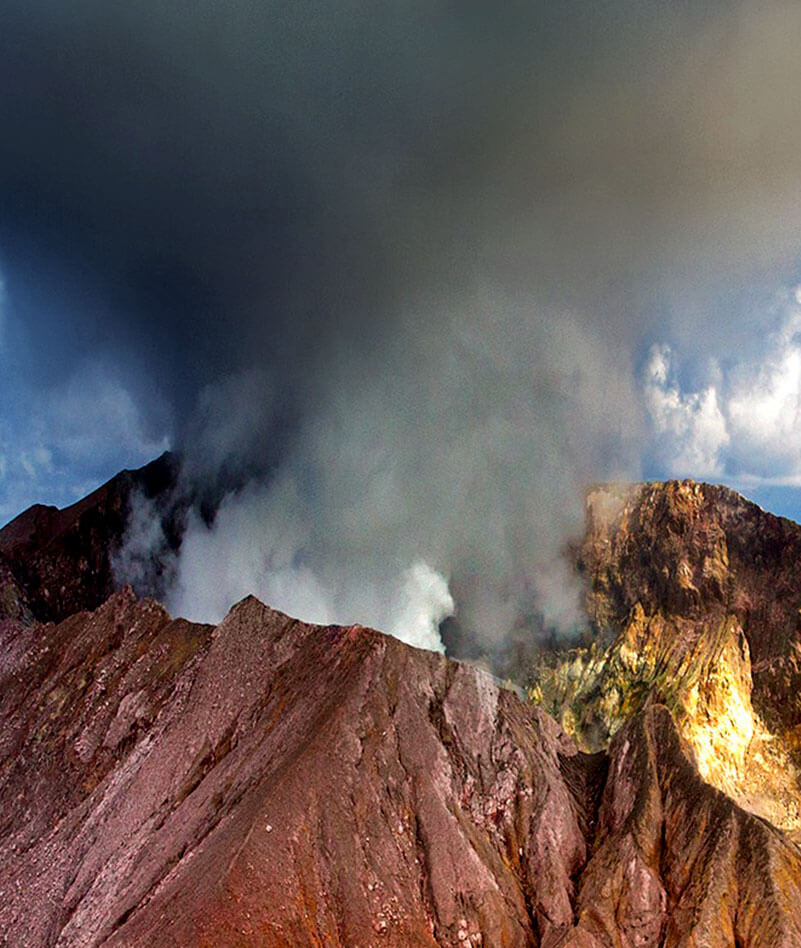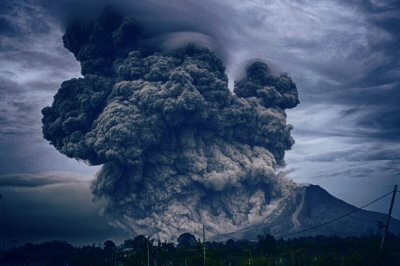
The loudest sound in the world
A detonation that was at least 10,000 times stronger than the Hiroshima atomic bomb, caused by a gigantic volcanic eruption on the island of Krakatau: The eruption in the Indian Ocean is not only considered to be one of the most powerful volcanic eruptions of modern times – it also made the loudest noise in the World.

A bang with consequences

In August 1883, the eruption on the island of Krakatau, located between Java and Sumatra, caused a natural disaster of global proportions. The biggest bang of the eruption could even be heard at a distance of 4,800 kilometers – in regions where the sound did not arrive until four hours later. The island, which consisted of the three volcanic peaks Rakata, Danan and Perbuwatan, was almost completely destroyed. The gases that escaped in the process changed the global climate. The actual volume can only be guessed at today. However, records show that a sound pressure of 180 dB could still be measured at a distance of 160 kilometers. Even today science is still concerned with the pressure generated at that time. During the explosion, Krakatau hurled 18 cubic kilometers of ash and rock around 25 kilometers into the air.
Incredible explosive power
The explosion resulted in colossal tsunamis, which swept tidal waves more than 40 meters high over the water. A total of around 160 villages on the coasts of the surrounding islands were destroyed, and more than 36,000 people lost their lives. The air pressure wave from the explosion was so powerful that it was measurable even five days later and after six orbits of the earth. It is estimated that the explosive force of the eruption was equivalent to about 200 to 2,000 megatons of TNT – roughly 10,000 to 100,000 times that of the Hiroshima atomic bomb.
After two thirds of the volcanic island sank into the water during the event, a new volcano rose from the sea at the same point in 1927. Anak Krakatau, the so-called “Child of Krakatau”, is now more than 450 meters high and is growing steadily. More than 100 outbreaks of the Anak Krakatau have been recorded in recent years. Through this activity, the natural tension is regularly relieved – and a super-breakout like in the past is therefore less likely.





